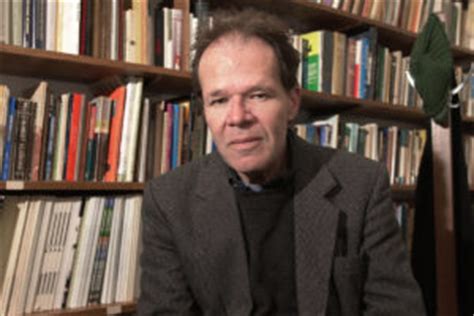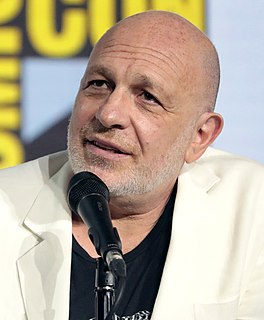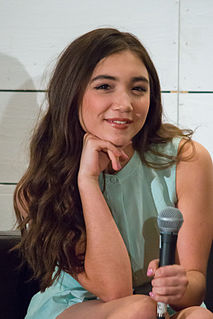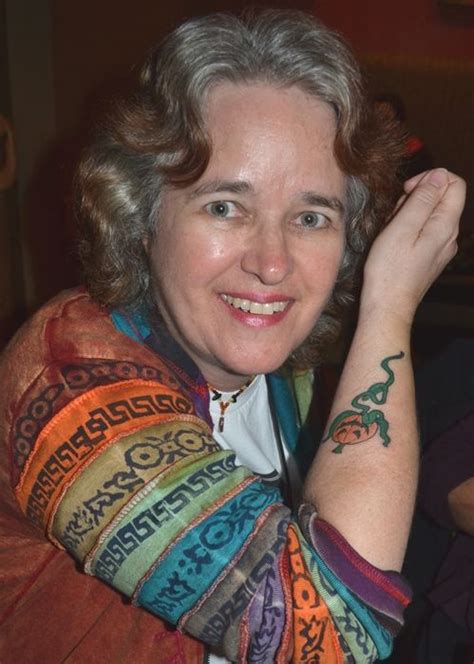A Quote by Lucy Corin
The short story is so much about inevitability and this feeling that things always had to be this one way, and I wanted the apocalypses to blow that idea apart. I hope it feels that way. I hope the book invites people to read the stories in order and then, if they feel like it, maybe not read them in order the next time.
Related Quotes
I hope that if the people who read my work encounter people in the real world who are like the characters that I write about, that maybe that might make them feel empathy for those people. I know it sounds idealistic in a way, but I do hope that my work maybe changes some minds, and that my work makes readers see people as human that maybe before they read my work they might not have seen as humans, and those people include me and my family and my kids, people in my community.
I used to comfort myself with the idea of a book with serrated, detachable pages, so that you could read the thing the way it came and then shuffle the pages, like a giant deck of cards, and read the book in an entirely different order. It would be a different book, wouldn't it? It would be one of infinite books.
Sure, kids want to read whatever is the hot book, and of course they want to read fantasy and any kind of speculative fiction, but they also like to read stories with kids that look just like them, that have the same problems as them. And I've noticed that what they particularly want to see is to see those characters prevail. So they don't want sanitized situations. They want stories to be raw, they want them to be gritty, but they also do want to see the hope at the end of the story.
I read John Irving's novel 'The World According To Garp' when I was about 14 or 15. It was the first grown-up book that I had read. It is the story of a young man who grows up to be a novelist. I finished it, and I wanted to write a book that made the reader feel the way I felt at the end of that, which was sort of both bereft and elated.
I'm not presumptuous enough to feel that people are going to feel what I have in mind, so I tell a story, you know, let them read something, that doesn't change, that as I have said it, you know, so that's the way I feel about the viewer, the viewer has a mind of their own and eyes of their own and they're going to see it their way, I just hope they look.
Write what you want to read. So many people think they need to write a particular kind of book, or imitate a successful style, in order to be published. I've known people who felt they had to model their book on existing blockbusters, or write in a genre that's supposed to be "hot right now" in order to get agents and publishers interested. But if you're writing in a genre you don't like, or modeling yourself on a book you don't respect, it'll show through. You're your first, most important reader, so write the book that reader really wants to read.
Adaptation is always the same process for me, which is some version of throwing the book at the wall and seeing what pages fall out. It is trying to imagine, remember the story, read it, put it down, and then write sort of an outline without the book in front of you with some hope that what you like about it will be filtered and distilled out through your memory and then that will be similar to what other people like about it.
Hope. People want hope. We crave hope. We long for hope. Hope has been present since the very beginning. And almost in the worst situations of human history, you often find the greatest amount of hope. The very nature of the situation, the way stepped-on people created within them even more hope than when things were going fine. Hope has always been around.
The Catcher in the Rye had such a deep impact on me, because it felt like it was just Holden and me. I didn't feel like any other person had read that book. It felt like my secret. Writing that I identify with feels like it's just me and the writer. So I hope that whoever is reading what I do feels like that.
I don't think we need a critic to negotiate with the audience. People say, "Who are you writing for?" I'm writing for myself but my audience is anybody who knows how to read. I think a story should engage anybody who knows how to read. And I hope that my stories do, maybe on a different level for more sophisticated readers than, say, a high school kid, but still a story has got to grab you. That's why we read it.
As a historically voracious reader - pre-baby, I averaged a book every week or two, and when I was a kid, I'd routinely read a book a day - I never understood how some people could not read. When I heard people say they didn't have time to read, in my head, I simultaneously pitied and ridiculed them: there was always time to read.







































